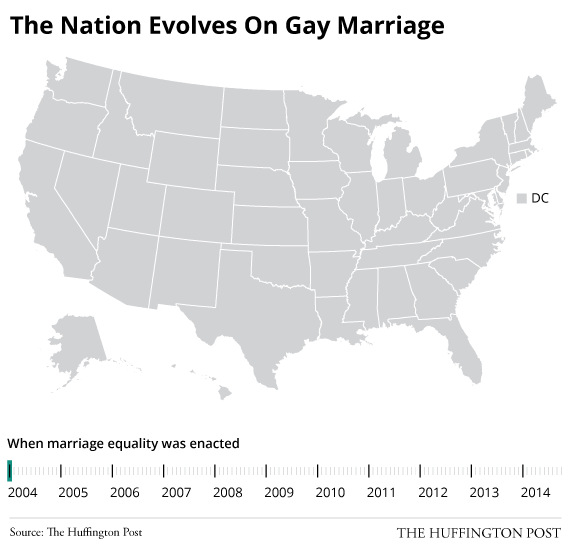NEW YORK TIMES: There are countless churches but not much openly gay life in this city by the banks of the Tennessee River. So when Benjamin Newbern, a onetime field organizer for the American Civil Liberties Union, convened gay residents and those he calls “straight allies” for dinner one recent evening, it was a radical act. Over pizza in the back room of a local restaurant, a college student, Jacob Ezell, said his mother worried “it would destroy our family” if his father found out that he is gay. A nurse who gave her name only as Cassandra said she feared being fired if her bosses discovered she is a lesbian. A high school senior, Landon Montgomery, recalled coming out at 13 — and being forced to leave the small Bible school he attended.
“No one would talk to me,” he said. “It was like a disease.”
The dinner, one of 11 Mr. Newbern has organized at the behest of a national gay rights group, seemed at times like a support group for gays in New York or San Francisco from decades ago. But here it was a tentative step in the next chapter of the gay rights movement: a push for equality and acceptance in hostile territory, especially the Deep South. The Supreme Court’s decision on Monday not to take up a same-sex marriage case was a tacit victory for the national gay rights movement and paved the way for gays to be able to marry soon in 30 states and the District of Columbia. But if the decision suggests a country heading inexorably toward marriage rights nationwide for gay couples, parts of the South seem like a world apart.
As a result, gay rights leaders are turning their attention to “low equality states” like Alabama, where religion is woven deeply into the fabric of life and gay people who come out often split from their families and churches. Legal protections remain practically nonexistent. Advocates’ goals are to elect gay candidates and to prod city and state officials to enact ordinances banning discrimination based on sexual orientation. But first, they say, they must get people in places like Florence to live more open lives.
“It’s hard to pass laws that change people’s hearts and minds,” said Steven Elmendorf, board chairman of the Victory Fund, which works to elect gay candidates. “We’ve got a lot more to do, and the only way to do it is to remember what it was like in Washington and New York in the ’80s and ’70s, when people came out and were visible.” Even after Monday’s Supreme Court decision, there will be about 20 “low equality” states, which “lack almost any kind of basic protections” for gays, according to the Movement Advancement Project, a group based in Denver that tracks the progress of gay rights. In such states, gay people can still be fired or denied housing, and there are no marriage or adoption rights for same-sex couples or laws against bullying in schools. Advocates worry about what will happen if gays gain the right to marry without other protections. MORE

